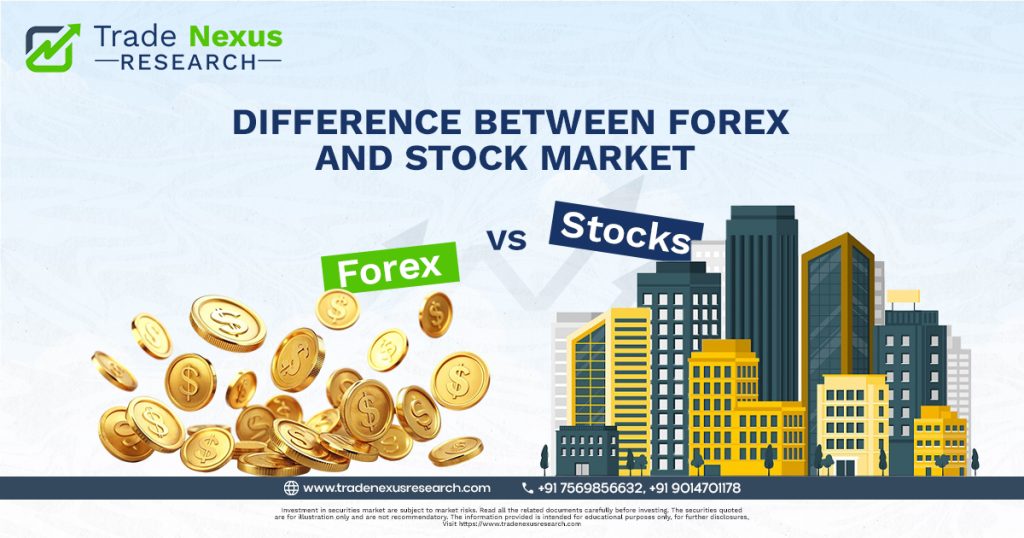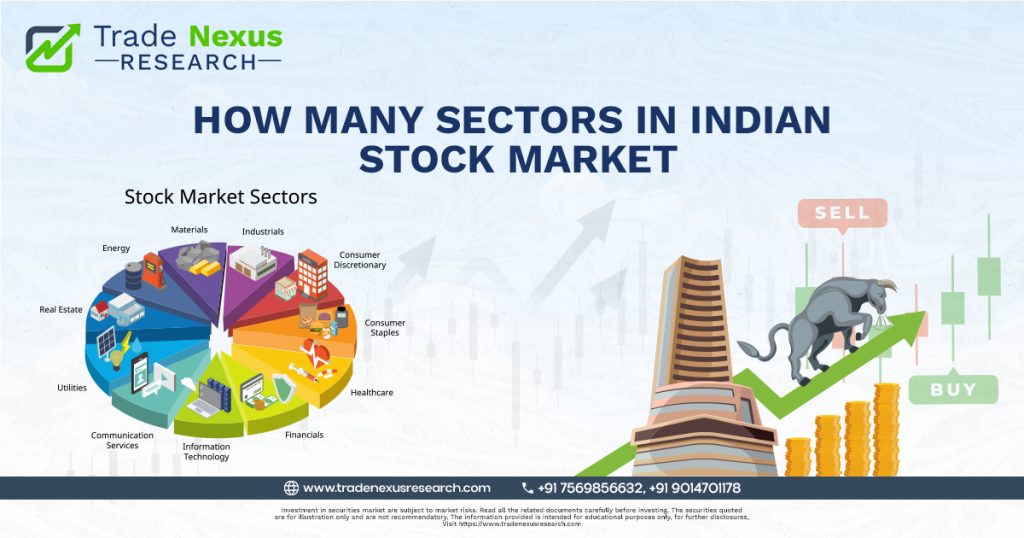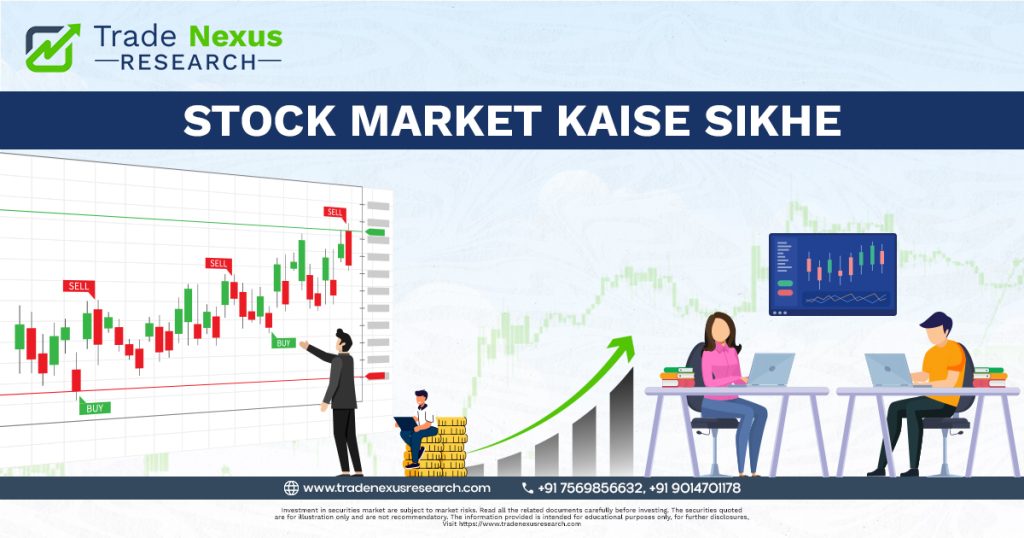How Many Sectors in Indian Stock Market

Introduction
The difference between forex and stock market is a common debate among traders and investors. While both markets offer profitable opportunities, they differ significantly in structure, liquidity, volatility, and trading strategies.
The forex market focuses on currency exchange, operating on a decentralized global scale, whereas the stock market involves buying and selling shares of publicly listed companies. Understanding these differences helps investors make informed choices.
This guide explores how forex trading and stock trading work, their key differences, and which market best suits different investment styles.
What is Forex Trading?
Understanding the Forex Market
The forex market, also known as the foreign exchange market, is a decentralized global financial marketplace where currencies are traded in pairs, such as EUR/USD or GBP/JPY. With a daily trading volume exceeding $7 trillion, it is the largest financial market worldwide.
Unlike the stock market, forex operates 24 hours a day, five days a week, allowing traders from different time zones to participate.
How Forex Trading Works
Forex trading involves exchanging one currency for another based on fluctuating exchange rates. Various economic, political, and financial factors influence forex prices, including:
- Central bank policies
- Global trade and economic performance
- Interest rates and inflation
- Market speculation and sentiment
Key participants in the forex market include:
- Central banks and governments – Influence currency value through monetary policies
- Financial institutions and hedge funds – Engage in large-scale trading
- Retail traders and corporations – Participate in forex for investment and business needs
Benefits of Forex Trading
- High liquidity ensures smooth trade execution
- 24/5 market access enables flexible trading schedules
- Low transaction costs with minimal spreads
- Leverage options enhance profit potential
Risks of Forex Trading
- High volatility can lead to sudden price swings
- Leverage amplifies both profits and losses
- Decentralized nature can expose traders to unregulated brokers
What is the Stock Market?
Understanding the Stock Market
The stock market is a centralized marketplace where individuals and institutions buy and sell shares of publicly traded companies. Major stock exchanges include:
- New York Stock Exchange (NYSE)
- NASDAQ
- London Stock Exchange (LSE)
- Tokyo Stock Exchange (TSE)
Unlike the forex market, stock markets operate during fixed trading hours depending on the country.
How Stock Trading Works
Stock trading involves purchasing shares of a company, with the expectation that their value will rise over time. Market trends, corporate earnings, and investor sentiment significantly impact stock prices.
Benefits of Stock Trading
- Long-term capital growth for wealth accumulation
- Dividend payments provide passive income
- Regulated markets ensure investor protection
- Wide investment options from blue-chip stocks to emerging companies
Risks of Stock Trading
- Market fluctuations due to economic downturns
- Limited trading hours restrict access to opportunities
- Lower liquidity compared to forex, making it harder to execute large trades quickly
Key Differences Between Forex Market vs Stock Market
Trading Hours
Forex market operates 24/5, allowing flexibility. Stock market has fixed hours and no weekend trading.
Liquidity and Market Size
Forex is the most liquid market, with trillions traded daily, while stock market liquidity varies depending on company size and investor interest.
Leverage and Risk
Forex brokers offer high leverage (up to 1:500), increasing both potential profit and risk. The stock market typically offers lower leverage, making it a safer long-term option.
Regulation and Security
The stock market is highly regulated by authorities like SEC (USA), SEBI (India), and FCA (UK). The forex market, being decentralized, has varying regulation levels based on broker and jurisdiction.
Investment Strategy
Forex is preferred for short-term trading, including scalping, day trading, and swing trading. Stocks are better suited for long-term investments with steady growth and dividends.
Change block type or style
Move Paragraph block from position 43 up to position 42
Move Paragraph block from position 43 down to position 44
Change text alignment
Difference Between Forex and Stock Market: Which is Right for You?
Choose Forex Trading If:
You prefer short-term trading with quick profits
You want to trade at any time of the day
You can handle high volatility and risk
You are comfortable using leverage effectively
Choose Stock Trading If:
- You prefer long-term investment and wealth growth
- You seek stable returns and passive income through dividends
- You prefer a regulated and structured market
- You want to invest in company growth over time
FAQs
Q1: Is forex more profitable than stock trading?
Forex can be more profitable in the short term due to leverage and liquidity. However, it is also riskier. Stock trading is better suited for long-term wealth accumulation.
Q2: Can beginners start forex trading?
Yes, but beginners should start with a demo account and learn risk management before investing real money.
Q3: What is the best time to trade forex?
The most active forex trading times occur during market overlaps, especially New York and London sessions (8 AM – 12 PM EST).
Q4: Is the stock market safer than forex?
Yes, the stock market is generally safer due to regulations and lower leverage. However, success in both markets depends on knowledge and strategy.
Q5: What are the best trading platforms for forex and stocks?
For forex, MetaTrader 4 & 5 are popular. For stocks, platforms like Robinhood, eToro, and Zerodha are widely used.
Conclusion
Both forex trading and stock trading offer unique opportunities. If you want a highly liquid market with 24-hour access and short-term profit potential, forex may be the right choice. However, if you prefer long-term investments with stable returns and dividend income, the stock market is a better option.
Understanding the difference between forex and stock market helps you align your trading strategy with your financial goals and risk tolerance.


